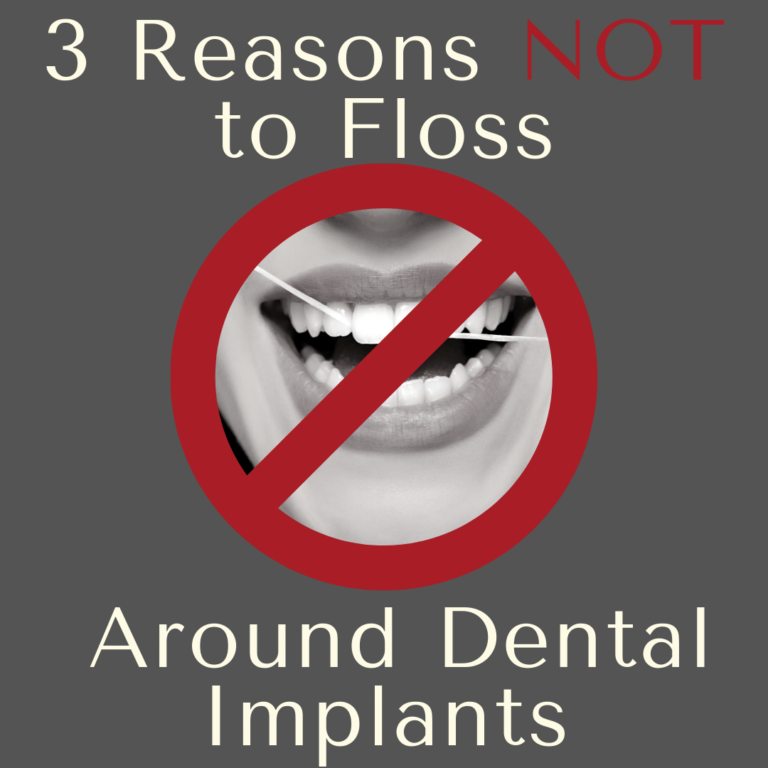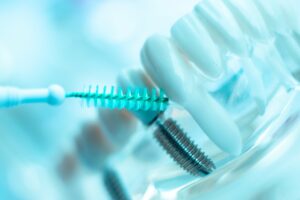3 Reasons to NOT Floss Around Dental Implants

Did you know that flossing can potentially be damaging to your dental implants? This may come as a shock to you considering that you have likely always been told about the importance of regular brushing and flossing to maintain rural health. While brushing and flossing are certainly important to maintain the health of your natural teeth, dental implants require a slightly different approach. Although you will still need to brush and floss, your flossing technique will look different with dental implants. This is because many dentist are recommending to not use traditional dental floss around implants for these three reasons:

Floss Shreds
One reason why your dentist may recommend against using traditional dental floss is because floss can shred easily when used around the base of a dental implant. Despite the fact that some types of floss are stronger than others, most floss is made to break apart easily. Unfortunately if this happens while flossing around an implant, it can cause pieces of the floss to become lodged between implant and gums. Since floss is considered a foreign body, it will likely cause an infection. In some cases, shredded floss pieces can cause peri-implantitis, which usually leads to implant failure.
Floss is Not Effective
Another reason why your dentist may recommend against using dental floss around dental implants is because floss is not always the most effective choice. Dental floss is designed primarily for use between natural teeth, and thus is made to fit between tight spaces. However, dental implants are not natural teeth and they are available in different sizes, shapes, and depth. All these various factors ultimately affect the spacing between dental implants and some spaces can be larger than others. Unfortunately, this means that dental floss alone may not be the best way to remove plaque and food debris.
Aggressive Flossing is Dangerous
Finally, some dentists recommend against flossing simply because having an aggressive technique can be dangerous to the survival of your dental implants. This is because there is a thin barrier between the implants and the underlying bone. In natural teeth, this barrier is made up of the periodontal ligament. However, periodontal ligaments are removed when implants are placed, and the remaining barrier is thin and more susceptible to damage. Aggressive flossing can cause this barrier to tear, which can allow bacteria to reach the underlying bone. When this happens, it can lead to bone loss and implant failure.
Instead of using traditional dental floss, your dentist may recommend using either an interdental brush or an oral irrigation system. Interdental brushes are small round or cone shaped brushes that are available in different sizes and lengths to fit between a variety of dental implants. They offer a more customizable approach to oral hygiene and are extremely effective at removing plaque from between dental implants. Oral irrigation systems are also sometimes referred to as water flossers. They earned their name because they use a thin stream of pulsating water as floss in order to remove plaque and debris from between the teeth and along the gum line. However, water flossers are less likely to cause damage to the surrounding tissues, which is why they are preferable to traditional dental floss. To determine which method is right for you, schedule an appointment with your dentist to discuss your options.






Recent Comments